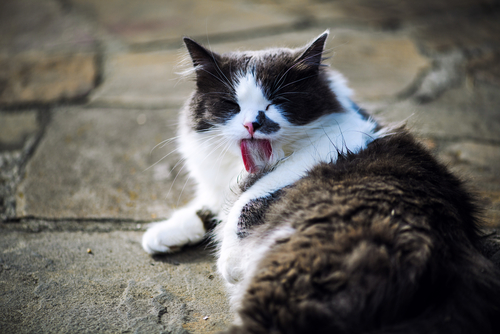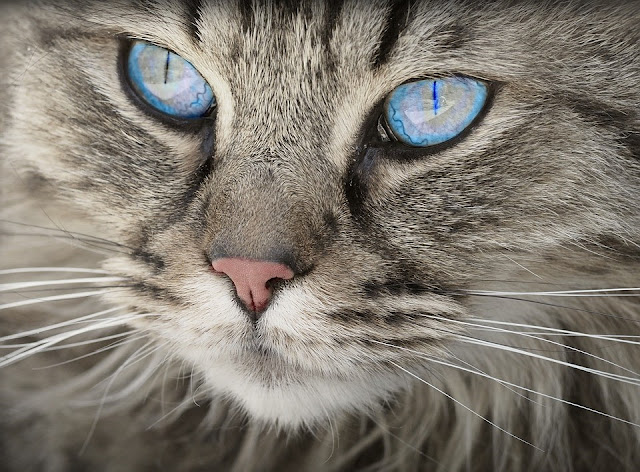Critical Supplements for Your Aging Pet
We are lucky to live in a time in which our pets can live longer, happier lives thanks to modern medicine. Still, as your pet gets older, you may find they need a little extra support. Older animals cannot absorb essential vitamins and nutrients as well as they once did from food alone. Additionally, older animals often suffer from problems with chewing and digesting food, making nutrient absorption even harder.This is one of the reasons why veterinarians often recommend owners administer a daily vitamin to their aging pet. Aging pets have an increased risk of developing diseases due to weaker immune systems.
Common Health Problems in Older Pets
A pet’s overall health is based on several factors, including their weight, height, breed, and gender, as well as the quality of care they receive from their owners. These are some of the most common ailments in aging pets:- Poor eyesight
- Weakened immune system
- Decreased playfulness or activity
- Joint pain and arthritis
- Heart disease
- Cancer
Critical supplements can help combat these health problems. Nothing can stop the inevitable process of aging, but a daily vitamin can help soothe a pet that is in pain or discomfort brought on by aging.
Before choosing a supplement for your pet, you should ask yourself some questions first.
Is Your Pet Aging?
Generally, once a dog or cat reaches seven years old, they are considered geriatric. These pets will require semi-annual veterinary examinations to ensure optimal health. A special diet formulated for older pets is usually also required so that they get the nutrients they need. Additional vaccinations and medications may also be required to ensure optimal health in aging pets.
Does Your Pet Need Supplements?
Your beloved pet may benefit from supplements to ease ailments, such as joint pain and poor eyesight. It is a good idea to purchase supplements and begin a daily vitamin regimen for your pet as soon as you notice their health start to deteriorate.
However, before you administer any supplements to your aging pet, you should consult your veterinarian. Certain supplements may react with medications your pet is currently taking. Always follow dosing instructions carefully. If you notice any adverse reactions to any supplements, consult your veterinarian immediately.
Top Supplements for Aging Pets
You’ve spoken to your veterinarian, who has recommended you administer some supplements to support your pet’s health. There are so many supplements available, and choosing the right one can be a difficult and confusing process. Luckily, we’ve done the hard work for you and rounded up some of the best supplements for aging pets on the market today.
As pets get older, their immune systems begin to weaken. Many debilitating diseases take advantage of a weakened immune system, so protect your pet by keeping their immune system strong. With ingredients like L-lysine and Reishi mushroom extract, this tasty vitamin supplement will keep your pet’s immune system in great shape. Administer twice daily according to package and/or veterinary instructions.
When pets age, their nerve cells begin to die. These nerve cells do not replenish themselves naturally, which may cause problems for your pet. Luckily, omega-3 fatty acids can help regenerate nerve cells and keep the existing nerve cells in good condition. Omega-3 fatty acids also play a significant role in improving brain function, mood, and behavior. The Ultra EFA is chock full of omega-3 fatty acids, which will help maintain your aging pet’s health in a myriad of ways. Administer according to package and/or veterinary instructions.
This supplement will ensure your pet’s liver stays healthy. Milk thistle, the primary ingredient, is an antioxidant that works to protect cells from damage. A combination of B vitamins also helps support digestion and the cellular process of withdrawing energy from food. This supplement is a must for pets suffering from problems with digestion or liver issues. Administer one capsule daily for pets weighing less than 50 lbs., according to package and/or veterinary instructions.
This food additive will support your pet’s gastrointestinal health by providing nutrients that are essential to forming healthy bacteria in the gut. These good bacteria support digestion, boost the immune system, and help fight off gastrointestinal infections and viruses. Add powder supplement to food according to package and/or veterinary instructions. We recommend you refrigerate this supplement after opening.
Tips for Caring for Your Aging Pet
These supplements are some of the best products available for promoting senior pet care. In addition to administering the right supplements to promote health and well-being, there are other steps you should take to care for your aging pet.
- Never give your pet supplements made exclusively for human use. These vitamins tend to have much larger doses of vitamins, minerals, and nutrients and may cause an overdose. Always purchase supplements made exclusively for your type of pet.
- Observe and evaluate your pet’s mental health. Many pet owners may not realize that pets can suffer from mental health problems just like humans do. Aging pets, in particular, are prone to senility. If you believe your pet may be showing signs of senility or other mental health problems, contact your vet immediately. Vitamins like Ultra EFA that promote brain function can help prevent the onset of senility and its associated behavior changes.
- Carefully monitor what your pet eats. Many owners feed table scraps to their pets. As your pet gets older, you will need to limit what types of food you feed them, especially when it comes to treats and human food. Commercial pet diets for older animals contain all of the nutrients and vitamins needed to maintain their health. Feeding your pet table scraps or treats in excess may disrupt the balance and cause further digestive problems for your pet.
- Educate yourself. The best way to ensure your pet’s overall health is to know what type of diseases they may be at risk of developing. This is particularly important if they are a certain breed that is known for developing a particular defect or disease. Being able to recognize the signs and symptoms of a life-threatening disease may make all the difference for your pet.
If you have any questions or concerns about a particular supplement, consult your veterinarian. Only your licensed veterinarian can give you the best advice in regards to your pet’s specific needs and overall health.
We hope this was informative for you! Thanks, CAMFormulas for sharing this with our readers.
Lola
Lola
Photo Credits: Pixabay and Shutterstock.












Good, good advice. Am I aging? Oh, at 6 I hope not but mama thinks I should think about Grecian Formula...haha.
ReplyDeleteBinga is taking a supplement that my human hoped would help her aging brain (she is getting a bit senile). Not sure if it is helping though!
ReplyDeletewaves two ewe L & L....thanx for sharin thiz post; therz two seniorz anda knot yet teen heer in TT...N we knead all de help we can get.....for de reel lee old food servizz gurl !!!!!! ☺☺☺ heerz two a uaru kinda week oh end; himz act shoo a lee a prette awesum fish;see ya twoozday ! ♥♥♥
ReplyDeleteI add supplements to Bentley and Pierre's meals. Bentley is a senior so he has been getting age appropriate supplements and it has made a huge difference. ♥
ReplyDeleteOur woofie, Tommy, gets some suoplements daily for his joints.
ReplyDeletePurrs,
The Chans
This is a fantastic post. I am going to look into the Liquid immino supplements.
ReplyDeleteHoudini is 16 now so keeping him healthy is important
Excellent post with lots of helpful info. My dog is 15 1/2 so of course I do what I can to ensure she receives the best care for her continued good health.
ReplyDeleteI may try the liquid immuno, it sounds like something they would like too.
ReplyDeleteThis is a fantastic post Lola and CAMFormulas. We have seniors and I WISH I could get the drops for Dusty and Harvey. Lola do they ship overseas? I know the probiotics would not be feasible (it 's a 'live' culture' I think...) but the drops I would SO love to try.
ReplyDeleteMy compliments on a great and informed post. The only thing my cats, and I, would disagree with is 'geriatric' at 7. Current health and care such as these supplements ensures cats stay fitter and healthier for so much longr. Perhaps 'mature' at 7 7 then 'geriatric' at beyond 10 - what do you think?
Hmmmm...we're getting older. Maybe we could use some of these supplements.
ReplyDeleteVery innerestin'. Big hugs
ReplyDeleteLuv ya'
Dezi and Raena
thorough and informative post. My dog needs joint supplements big time. He ripped his ACL a few years ago, had an operation, but it didn't heal well. Now I watch his joints carefully because I don't want him to rip the other one - and he runs like crazy at the age of 12
ReplyDeleteGreat post, very informative ! Purrs
ReplyDeleteThis comment has been removed by the author.
ReplyDeleteI always think the VERY BEST thing I can do for my cats is educate myself to help them live happy and healthy lives. All of my cat's have some sort of health issue - IBD, asthma, viral eye infections and FLUTD - but through supplementation and the right diet, they have flares very rarely. I was also intrigued by the supplement above with reishi mushroom which I know is good for humans, I hadn't seen it in a feline product before.
ReplyDeleteGetting older sure isn't easy. Great tips!
ReplyDeleteI've been wary of supplements for a long time. It wasn't until our new vet (after a move) recommended Kitty take a supplement for hepatic lipidosis that we lost the fragile stability we'd maintained for years. I understand lipidosis isn't usually chronic ... but I can't help thinking that in trying for more than a stable condition, we might have made it worse. She was almost 16 and diabetic too ... so it's probably unfair to blame a supplement ... but when it comes to our furbabies, we often lose the ability to look at things rationally and objectively and instead try to find a thing to blame to convince ourselves there was some measure of control over the situation. Most likely, it was just her time.
ReplyDeleteAnnie's 10 and a half, so these are some good ones to consider. Thanks for sharing these!
ReplyDeleteThis is really useful information, thank you for sharing! As of this Fall, both my dogs are considered seniors. I can't believe how quickly it came about! I have to start thinking about supplements for them now, particularly Phoebe my oldest one.
ReplyDeleteLove & Biscuits,
Dogs Luv Us and We Luv Them
Great post, Layla's dehydrated food has incredible ingredients especially for her age so my vet said supplements are not that necessary but I still add royal jelly to her food, as she ages she is becoming more of a puppy LOL
ReplyDeleteGreat and much needed post. I am a fan of proper supplements and don't want til age creeps up. We have been on some vitamins since puppyhood.
ReplyDeleteI have an 8, 7, and 6 year old and they are on and continue supplements and I notice a huge difference in them from before to now. It is SO important for them as as they age.
ReplyDeleteMy cat is about 16 years old, I'll have to ask my vet if she thinks he should be taking some supplements.
ReplyDeleteWOw! Great! Your cat is 16 year old. I hope my cat will that longer!
DeleteWow! 7 or 8 years old to be considered geriatric. Truffle and Brulee will be 6 this summer.
ReplyDeleteAging really sucks for any species and pet lives are way too short so important to make them as happy and healthy as possible. I have started taking a few supplements for myself and will probably look at more for Kilo the Pug in a year or two- he is 4.
ReplyDeleteThis is good to know! Preventing problems using natural supplements is so much nicer than trying to fix problems with pharmaceuticals later on. I may have to look into some of these for Manna. She will be 10 this summer and is still in perfect shape. I would like to keep her that way.
ReplyDelete